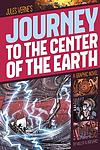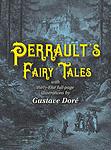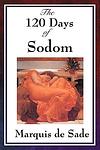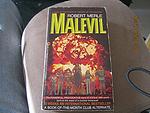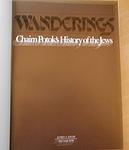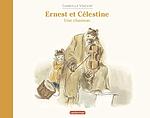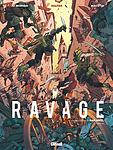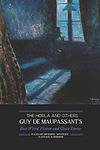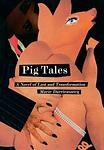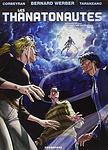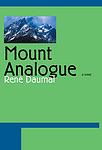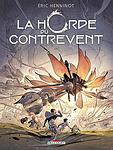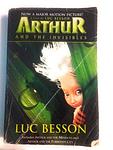The Greatest French "Speculative Fiction" Books of All Time
Click to learn how this list is calculated.
This list represents a comprehensive and trusted collection of the greatest books. Developed through a specialized algorithm, it brings together 300 'best of' book lists to form a definitive guide to the world's most acclaimed books. For those interested in how these books are chosen, additional details can be found on the rankings page.
Genres
Speculative fiction is an umbrella genre encompassing narrative fiction with supernatural or futuristic elements. This includes genres such as science fiction, fantasy, horror, supernatural fiction, superhero fiction, utopian and dystopian fiction, apocalyptic and post-apocalyptic fiction, and alternate history. The unifying factor of speculative fiction is its departure from the narrative constraints of reality, exploring imaginative and often profound questions that challenge our understanding of the world and our place within it. These stories often delve into themes like the human condition, social commentary, and the exploration of philosophical and ethical dilemmas through the lens of the fantastical or the yet-to-be-possible. By pushing the boundaries of the known, speculative fiction invites readers to consider the myriad possibilities of existence and the potential consequences of our actions in worlds that are, at once, vastly different from and eerily similar to our own.
Countries
Date Range
Reading Statistics
Click the button below to see how many of these books you've read!
Download
If you're interested in downloading this list as a CSV file for use in a spreadsheet application, you can easily do so by clicking the button below. Please note that to ensure a manageable file size and faster download, the CSV will include details for only the first 500 books.
Download-
1. Twenty Thousand Leagues Under the Sea by Jules Verne
This classic science fiction novel follows the adventures of Professor Aronnax, his servant Conseil, and harpooner Ned Land as they are captured by the enigmatic Captain Nemo aboard the Nautilus, a technologically advanced submarine. As they journey 20,000 leagues under the sea, they encounter a variety of sea creatures and underwater phenomena. The narrative explores themes of exploration, scientific discovery, and man's relationship with nature.
-
2. Journey to the Center of the Earth by Jules Verne
This science fiction novel revolves around a German professor who believes there are volcanic tubes leading to the center of the Earth. He, his nephew, and their guide embark on an adventurous expedition down an Icelandic volcano into the Earth's core. They encounter prehistoric animals, natural disasters, and otherworldly phenomena along their journey. The expedition is both thrilling and dangerous, testing the limits of their courage and survival skills.
-
3. Story of the Eye by Georges Bataille
This novel is a provocative exploration of the dark side of human nature, featuring two teenage characters who engage in increasingly bizarre and violent sexual games. Their actions, driven by their obsession with eroticism and death, lead them into a world of perversion and madness. The narrative is filled with explicit sexual content and shocking imagery, reflecting the author's fascination with the transgressive and the taboo.
-
4. The Complete Fairy Tales of Charles Perrault by Charles Perrault
This book is a comprehensive collection of classic fairy tales, featuring enchanting stories that have been passed down through generations. It includes beloved tales such as "Cinderella", "Sleeping Beauty", "Little Red Riding Hood", "Puss in Boots", and "Bluebeard", among others. Each story is rich in fantasy, moral lessons, and iconic characters, making it a timeless treasure for both children and adults.
-
5. The Phantom of the Opera by Gaston Leroux
The book tells the story of a beautiful soprano at the Paris Opera House named Christine Daaé who becomes the obsession of a mysterious, disfigured musical genius living in the subterranean labyrinth beneath the opera house. Known as the Phantom, he terrorizes the opera company to compel them to keep giving roles to Christine, whom he tutors in secret. The tale unfolds with love, jealousy, and violence, culminating in a dramatic conclusion.
-
6. The 120 Days of Sodom by Marquis de Sade
The book is an explicit and controversial work that explores themes of sexual perversion and cruelty. The narrative follows four wealthy, libertine men who lock themselves in a remote castle with a harem of 46 victims, including men, women, and children. Over the course of 120 days, they engage in a series of escalating debaucheries, meticulously documented by the men. The story is a study of the darkest corners of human nature, presenting an unflinching and graphic portrayal of sexual violence.
-
7. Malevil by Robert Merle
Set in the aftermath of a devastating nuclear war, the novel follows a group of survivors who find refuge in a medieval castle named Malevil. The survivors, led by the protagonist, must navigate the challenges of rebuilding their lives in a drastically altered world. They grapple with issues of survival, community, morality, and leadership as they encounter other groups of survivors with different philosophies and intentions. The story is a gripping exploration of human resilience, the will to maintain civilization, and the complexities of interpersonal relationships in a post-apocalyptic setting.
-
8. The Wandering Jew by Eugène Sue
"The Wandering Jew" is a captivating novel that follows the intertwined lives of various characters across different time periods and locations. From the Middle Ages to the 19th century, the book explores themes of love, revenge, and redemption as it delves into the experiences of a mysterious immortal figure known as the Wandering Jew. Through vivid storytelling and rich historical detail, the novel offers a thought-provoking exploration of human nature and the consequences of our actions.
-
9. La Vie Et Demie by Sony Labou Tansi
"La Vie Et Demie" is a thought-provoking novel set in an unnamed African country, where an oppressive regime has seized power and implemented a bizarre policy of dividing its citizens into "halves" and "wholes." The story follows the life of a young girl named Sophie, who is born as a "half" and faces discrimination and hardship due to her status. Through Sophie's experiences, the author explores themes of identity, inequality, and the dehumanizing effects of totalitarianism, offering a powerful critique of social and political systems.
-
10. Ernest And Celestine by Gabrielle Vincent
"Ernest And Celestine" is a heartwarming children's book about an unlikely friendship between a bear named Ernest and a young mouse named Celestine. Despite societal expectations and prejudices, the two form a deep bond and defy the norms of their respective worlds. Through their adventures and challenges, they teach readers the importance of acceptance, friendship, and the power of love.
-
11. Mamy Wata Et Le Monstre by Veronique Tadjo
"Mamy Wata Et Le Monstre" by Veronique Tadjo is a captivating tale that explores the relationship between humans and nature. Set in a coastal village, the story follows the adventures of a young girl named Mamy Wata, who discovers a mysterious monster wreaking havoc on her community. As she embarks on a journey to confront the monster, Mamy Wata learns valuable lessons about the importance of harmony and respect for the environment. With its vivid imagery and thought-provoking narrative, this book serves as a reminder of the delicate balance between humans and the natural world.
-
12. Ravage by René Barjavel
Set in a dystopian future where technological civilization has collapsed following a catastrophic event, the narrative follows a group of survivors as they navigate a world plunged into chaos. With all modern conveniences and social structures gone, the protagonist, a young man, leads a band of people from the ruins of Paris to his ancestral home in Provence, hoping to rebuild a simpler, agrarian-based society. Along the way, they face numerous challenges, including the regression of humanity to barbarism and the struggle to maintain their own humanity in the face of desperation. The story is a cautionary tale about the fragility of civilization and the enduring power of nature and human resilience.
-
13. I Spit On Your Graves by Boris Vian
The book in question is a controversial revenge novel centered around an African-American man who passes for white in a small American town. Seeking vengeance for his brother's lynching, he systematically targets and seduces white women, leading to a series of violent and sexually explicit encounters. The narrative unfolds as a brutal critique of racism and the American justice system, culminating in a shocking and grim conclusion that reflects the deep-seated racial tensions of the era. The book's graphic content and exploration of racial identity have sparked significant debate and censorship since its publication.
-
14. The Immortals by René Barjavel
"The Immortals" is a science fiction novel that explores the consequences of a groundbreaking discovery: a serum that grants eternal youth. As the serum becomes a coveted resource, it drastically alters society, leading to a chasm between the immortal elite and the aging population. The narrative delves into themes of power, inequality, and the ethical dilemmas of immortality, while following the lives of those who seek to control the serum and those who are affected by its existence. The story raises profound questions about the nature of life, death, and the true cost of eternal life.
-
15. The Horla by Guy de Maupassant
The book is a chilling tale of psychological horror that delves into the fragile human psyche through the diary entries of a man who becomes increasingly convinced that he is not alone. He senses the presence of an invisible, malevolent entity that he calls "the Horla," which he believes is a superior being that has begun to exert control over his mind and body. As his paranoia and obsession with the Horla grow, so does his descent into madness, leading him to question the nature of reality, free will, and his own sanity. The story masterfully explores themes of existential dread and the fear of the unknown, culminating in a haunting and ambiguous conclusion.
-
16. L'enchanteur by René Barjavel
The book is a reimagining of the Arthurian legends, focusing on the figure of Merlin the Enchanter. It delves into the life and role of Merlin, exploring his powers, his love for the Lady of the Lake, and his involvement in the fates of the legendary characters of King Arthur, Guinevere, Lancelot, and the Knights of the Round Table. The narrative weaves a tale of magic, love, and destiny, as Merlin tries to navigate the complex web of human emotions and political intrigue, while attempting to fulfill his own prophecies and maintain the balance between the forces of good and evil.
-
17. Pig Tales by Marie Darrieussecq
This novel is a satirical and dystopian narrative that follows the life of a woman who gradually transforms into a pig. Through her metamorphosis, the story delves into themes of identity, societal decay, and the objectification of women. Set against a backdrop of a corrupt and perverse society, the protagonist's journey from human to pig serves as a critical commentary on the dehumanizing aspects of contemporary life and the commodification of bodies. The narrative's dark humor and surreal elements underscore the absurdity of the protagonist's changing reality, offering a poignant critique of modern societal norms and the loss of personal agency within oppressive systems.
-
18. Empire Of The Ants by Bernard Werber
In this novel, readers are plunged into a fascinating and complex world beneath their feet, where an ant civilization thrives with its own sophisticated society, technology, and culture. The story intertwines the lives of these ants with the human world, particularly through the experiences of a family that inherits a mysterious apartment in Paris, which hides secrets linked to the ant empire. As the narrative unfolds, the book explores themes of coexistence, the nature of intelligence, and the intricate balance of ecosystems, challenging the reader to consider the world from an entirely different perspective and to question humanity's place within the grand scheme of life.
-
19. Les Thanatonautes by Bernard Werber
The book explores the adventures of a group of pioneering scientists who embark on an experimental journey to map the realm of death, which they term "Thanatonautes." By inducing near-death experiences, they navigate through successive levels of the afterlife, each with its own challenges and landscapes, in an attempt to uncover the secrets of what lies beyond life. Their quest for knowledge pushes the boundaries of science and spirituality, leading to profound insights about the human soul and the mysteries of existence, while also raising ethical and philosophical questions about the consequences of tampering with the unknown.
-
20. Les Racines Du Mal by Maurice G. Dantec
The book is a dark and complex thriller set in the near future, where a series of gruesome murders has gripped Europe. The narrative follows a troubled detective with a cybernetically enhanced brain as he tracks a serial killer whose crimes are linked to a sinister biotechnology corporation. As the investigation deepens, the detective uncovers a web of conspiracy that challenges the boundaries of human nature and technology, leading to a chilling exploration of the roots of evil and the potential horrors of a post-human world.
-
21. Mount Analogue by René Daumal
The book is a novel that combines surreal adventure with philosophical inquiry, telling the story of an expedition to a mysterious, inaccessible mountain that represents a spiritual quest. The mountain, which connects Earth to Heaven, can only be perceived by those who have refined their inner vision. The narrative follows the explorers as they embark on their journey, facing various challenges and revelations that mirror the inner landscapes of human consciousness and the pursuit of enlightenment. As the climbers ascend, the novel delves into themes of reality, symbolism, and the pursuit of the absolute, ultimately leaving the reader with a contemplation of the unattainable peak of human knowledge and experience.
-
22. Yvain by Chrétien de Troyes
The narrative centers around a valiant knight of King Arthur's court, who, spurred by tales of a fellow knight's defeat, embarks on a quest to avenge his comrade and restore his honor. He successfully confronts the mystical knight who guards a magical spring, winning the heart of a noble lady in the process. However, his commitment to the chivalric code and his thirst for adventure lead him to neglect his new bride, prompting a journey of self-discovery and redemption. Through a series of fantastical encounters with giants, lions, and otherworldly beings, the knight learns the importance of balance between knightly duties and personal relationships, ultimately seeking to reconcile his marital vows with his identity as a warrior.
-
23. La Horde Du Contrevent by Alain Damasio
The book is a French science fiction novel that follows a group of intrepid explorers, known as the Horde, as they embark on an epic quest against a relentless, omnipresent wind to reach the mysterious source of the wind at the far end of their world. The narrative is uniquely structured, with each member of the Horde providing their own perspective, and the story delves into themes of camaraderie, human resilience, and the struggle against nature. As the characters face physical and existential challenges, the novel explores the depths of human experience and the bonds that form in the face of adversity.
-
24. Arthur And The Invisibles by Luc Besson
This enchanting tale follows the adventures of a young boy named Arthur, who embarks on a thrilling journey to save his grandmother's house from being repossessed. In his quest, Arthur discovers a secret world inhabited by tiny beings called the Minimoys. With the help of these magical creatures and their princess, Arthur navigates through a series of challenges and battles the evil Maltazard to find a hidden treasure. Along the way, he learns valuable lessons about courage, friendship, and the importance of believing in oneself. This story blends fantasy, action, and heartwarming moments, captivating readers with its imaginative world and memorable characters.
-
25. The Possibility Of An Island by Michel Houellebecq
The novel explores the life and thoughts of a successful comedian who, disillusioned with the superficiality and decay of human relationships in a hedonistic society, becomes involved with a cult that seeks immortality through cloning and genetic manipulation. As the narrative alternates between the comedian's experiences and the reflections of his future cloned descendants, it delves into themes of existential despair, the search for meaning, and the consequences of eternal life. The story weaves a bleak and satirical tapestry of humanity's obsession with youth, sex, and death, ultimately questioning the very nature of human progress and happiness.
Reading Statistics
Click the button below to see how many of these books you've read!
Download
If you're interested in downloading this list as a CSV file for use in a spreadsheet application, you can easily do so by clicking the button below. Please note that to ensure a manageable file size and faster download, the CSV will include details for only the first 500 books.
Download
